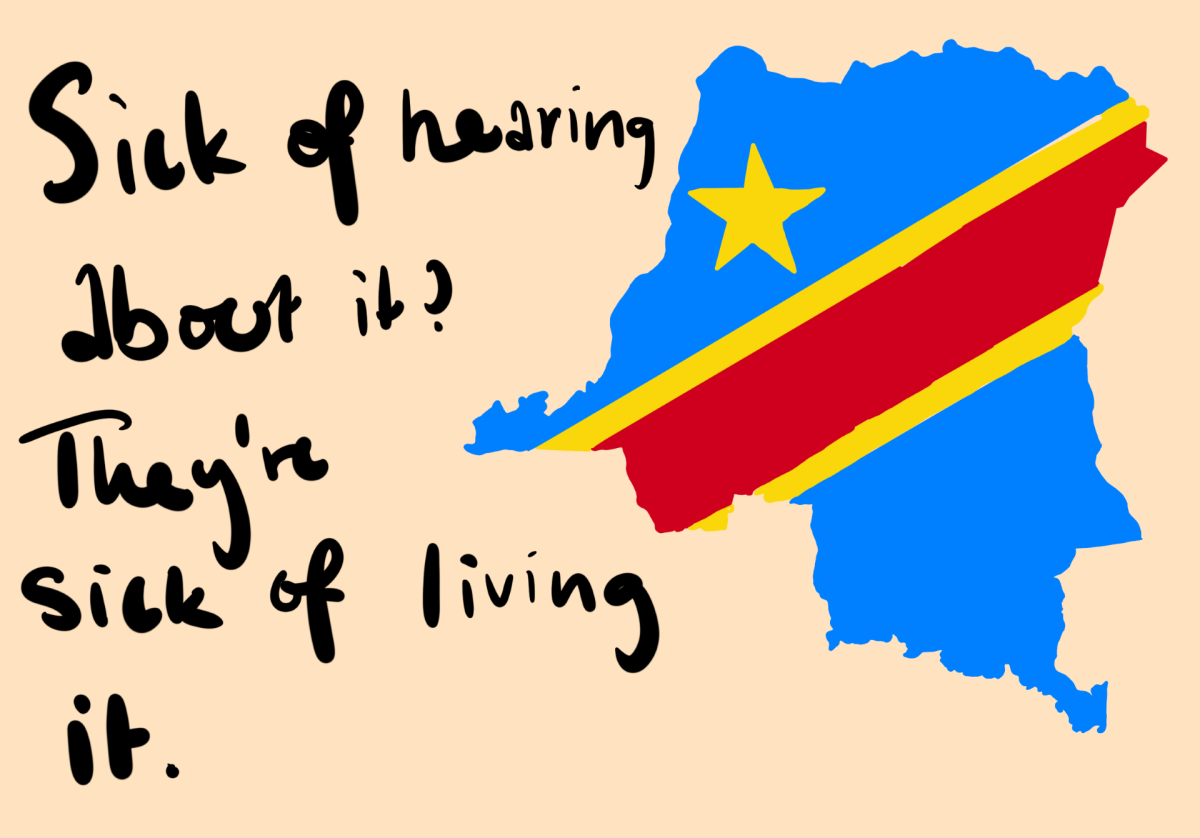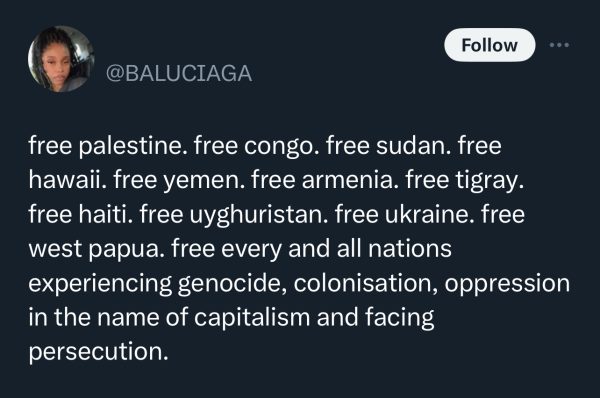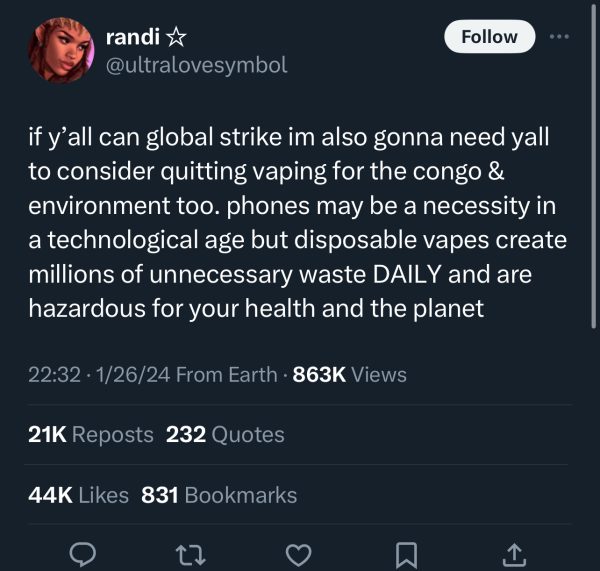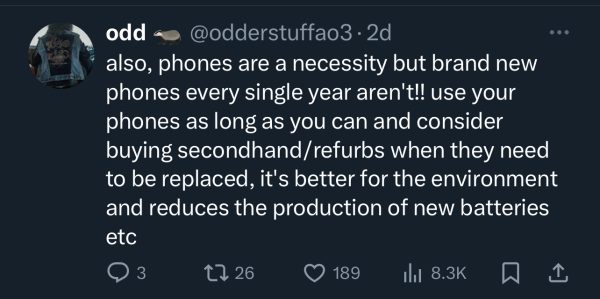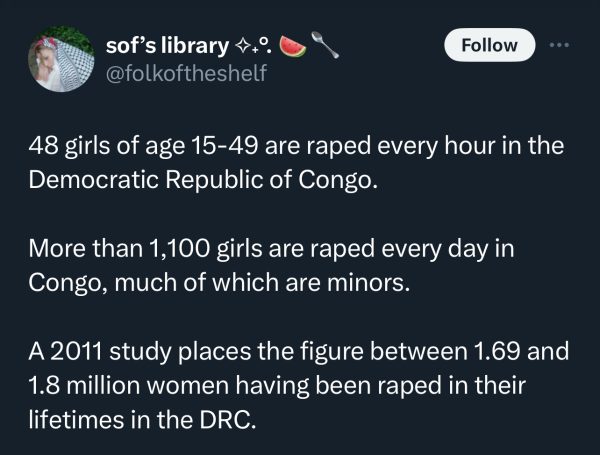Amidst the widespread humanitarian crisis throughout many regions, social media has significantly highlighted the open discussions revolving around the Democratic Republic of the Congo, often referred to as a “Silent Genocide.”
For brief context, the Congo is known for their natural resources, including rich items like cobalt which is a key component in producing smartphones, tablets, cars, televisions, laptops, and electronic cigarettes. At least 60% of the world’s intake of cobalt rests in the Congo. (Wilson Center). However, there is a more sinister side to the Congo.
According to The New York Times, within the last three decades over 6.5 million Congolese people have been displaced, and the crisis has taken the lives of more than 6 million innocent people. And yet, there is relative silence on this issue.
Since the start of the three-decade genocide, over 120 militias have been actively operating in the Congo, including North and South Kivu, Ituri, and Tanganyika provinces In these areas, these groups have committed multiple crimes against humanity.
One of the groups commonly responsible for the genocide in the Congo is M23. According to The New York Times, since October 2023, M23 has seized the Congo in multiple regions, inciting many military strikes that have increased control in the cobalt mines. The corrupt attempt to gain control of cobalt has led to civilians being abused by military power. In some instances, civilians have been forcefully removed from their homes to aid in the expansion of cobalt mining.
Residents have shared their stories, explaining how before the invasion they lived modestly, having basic essentials of water and electricity. Now they share their stories, explaining how they “have to drink water from wells … almost no electricity” (Amnesty International).
In a December 17th, 2023 article in the New York Times, Congo resident Amani shares the story of how she was held at gunpoint by three armed men, being given the option of either being attacked or killed.
Throughout the war, Amani, mother of seven, has been raped two times by gunmen. Women have become proportionally more vulnerable in this state of crisis. Just in October of 2023 Doctors of Borders stated that they treat 70 cases of sexual assault a day, and have racked up to 18,000 cases just in 2023 alone. These are just the cases that have been reported, as many cases never come to light to doctors or authorities.
Adults are not the only age group whose lives are being destroyed in the Congo. Children are being forced from their homes, either put into the mines or working in other militias nearby. 255,000 Congolese citizens are currently mining for cobalt, and 40,000 have been reported to be children. The youngest of them is only six years old, (Wilson Center). The conditions they work in are unsafe, and these oppressive conditions will continue if we refuse.
The Congo is suffering, and without media coverage in the West, it will only continue to get worse. Disease is rapidly spreading and food is scarce (The New York Times). As mentioned before, the Congo has around 6 million people, and it is estimated that only 2.5 million people go to bed with a satisfied stomach. (The World Food Program).
The Congo is a war-torn nation, and with the corrupt governments and militias controlling the area, the Congo has become severely impoverished.
At this time, specifically in high school, there is only so much teenagers can do to provide support. In similar conversations to the Israel/Palestine conflict that is ongoing, support and awareness can be spread throughout the media.
To provide some form of support, donations can be made to: Save The Children, an organization that has been working with The Congo since 1994. Doctors without Borders and organizations such as Friends of the Congo have consistently provided aid.
It is good to get informed about what is going on, specifically since the Congo has been living through the horrors of this silent genocide for years. As humans it is our natural right to demand help from others–to pressure our government officials, calling or writing to Congress to gain attention to help with foreign aid. In some ways, TikTok and Twitter have become a great platform to provide support. Proceeds from using songs and filters have been able to reach families to aid them. It can also be as simple as not purchasing the next generation of iPhones until seriously necessary.
The exploitation of Congolese people deserves to be brought to the forefront of public knowledge. Women deserve to live in a safe, prosperous environment where they do not fear when they will be assaulted next, and children should live a life with joy rather than working in the mines. The silent genocide in Congo must be talked about.


